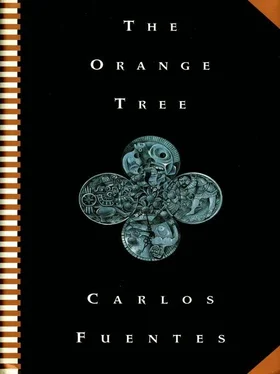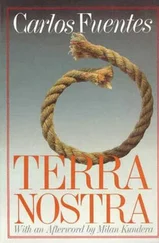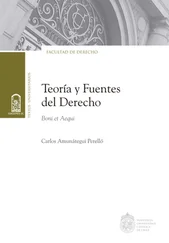MARTÍN 2
My poor brother. Blinded. Deluded. Proud. He has an immense power in this land, but he doesn’t know how to use it. He is a mirror held up to the deeds of our father. A presentable mirror. On the other hand, I … He: annual rents paid him: fifty thousand pesos. Educated, refined. I see him. I see myself. I am his distorted mirror. There is no gentleman more powerful than he in the colony. All the honors and income owed my father, denied my father, were given to him. Unlike my father, he represented no political danger. Arable land, estates, tributes, tithes, first fruits: everything was given him as if to say: Keep quiet. We are giving you all the honors, all the wealth. But we deny you power, just as we did your father.
I tell him: “Take power, too.” He doesn’t want to: he accepts things as they are, and that’s his nature. But the idea of rebellion to win Mexican independence is not an idea born of my rancor (as he sees it) or his vanity (as I see it). These things happen despite us. Behind our backs. They have their own laws. Mexico is no longer Tenochtitlán. But it is not Spain, either. Mexico is a new country, a different country, which cannot be governed from a distance and at one remove, just like that. We are the Crown’s stepsons. My father knew it, but he as yet did not have a Mexican homeland, although he did want it. He wanted it; I want it. We, his sons, not only have a new country. We are the new country. I hear its voices and tell my brother, “Don’t make a sound, keep quiet, speak softly, rape with dissimulation; Mexico is a country wounded at birth, nursed on the milk of rancor, brought up with the whisper of the shadow. Talk to it tenderly, coddle it, support it, and make it yours in secret. Don’t tell anyone about your love for Mexico. Public light offends the sons of the shadow. Go on dying discreetly, find supporters, promise everything to everyone, then give out just a little and no more (since no one here ever expects anything; they’re happy with a little, which to them seems a lot). Take advantage of political opportunity.”
The viceroy died. There were three justices in expectation of a new viceroy. They went on taking care of the affairs of the day, almost through inertia. The permanent subject of the administration was still just one: to define the powers of the Crown and those of the conquistadors. The sons of the conquest presented their briefs to the Council. The Council put them off — weakly. But the descendants saw in it an insolent affront and responded with insolence of their own: “Let’s hope that what they say about those who want everything — that they lose everything — doesn’t happen to the King.” The arrogant Alonso de Ávila said that, and everyone attributed the idea to my brother. Two sides formed, and all because of some gloves. A certain Don Diego de Córdoba was given twenty thousand ducats by the criollos under the pretext that he buy them Spanish gloves not made here. It was a pretext for this Don Diego to negotiate the rights of the criollos in court, without any appearance of bribery.
Since Don Diego got nowhere and kept the ducats, and no gloves reached the hands of the hidalgos, two sides formed. One approached my brother to ask him to lead the revolt and take advantage of the weak Council. The other group went directly to the impotent Council to denounce my brother, Ávila, and their friends. The Council, fearful of my brother’s power, vacillated. My brother, fearful of royal power, also vacillated.
Offstage, those who did not hesitate acted. In my brother’s name, his supporters seized the symbolic opportunity offered by a memorable date: August 13, 1565, the anniversary of the capture of Mexico City-Tenochtitlán by Hernán Cortés. It was the so-called Festival of the Banner. The conspirators decided to take advantage of the revelry, the crowds of people who would be present, and the tradition of mock duels and skirmishes to put a boat with cannon on wheels and pretend to attack a rolling tower, which would also be filled with artillery and soldiers. The acting governor would pass between them with his banner. Just then, armed men would pour out of both, seizing the Council and its banner and proclaiming Don Martín Cortés King and Master of Mexico.
Oh … What I feared most took place: you lost the initiative, Brother.
They were one step ahead of you.
MARTÍN 1
All of that went on behind my back, I swear it. Buying gloves for rich hidalgos! Who could think up something like that … It is true that they came to see me, to compromise me, to sing me the eternal litany of criollo woes — that no one ever took them into account, that they were badly governed by inept people sent from Spain, that the judges and governors got in the way of their business, that they did not have the right to govern the country as their fathers, the conquistadors, did, without consulting anyone. I let them talk. I didn’t discourage them. But I did warn them: “Do you really have people behind you?” “Many,” they answered, and they named them. One was a certain Baltasar de Aguilar, a captain in the army. “Well, let’s hope that it all doesn’t fall apart”—I warned them—“and we lose our lives and estates. As far as I’m concerned,” I said (and I repeat it here and now as proof of my sincerity, which has never been denied), “if you don’t go forward, I’ll keep quiet. But if you make some headway, I’ll step forward and denounce you to the King. I’ll say, ‘Majesty, my father gave you this land. Now I give it back to you.’”
But before anything like this could happen, this Baltasar de Aguilar person, named captain by the plotters, stole the march on all of us and went to the Council to tell everything he knew about the uprising, about how they were going to make me king and about how he was supposed to be captain of all the plotters. I knew nothing. I was at the time deeply involved with a lady, and because of her influence, I favored members of her family, who were convinced both that I had Moctezuma’s treasure hidden and that it would ultimately turn up in her skirts. Now you tell me if I had any time to think about becoming king, when my lady love’s relatives, not seeing any signs of the treasure, grew impatient, locked her up, started spreading libelous papers about me all over town, and walked in front of me on the street without tipping their hats.
I recovered from those insults by celebrating the birth of another son of mine and by trying to repeat the festivities of the previous year: triumphal arches, artificial forests, music, lots of pomp and circumstance. There was a jolly masquerade and then a grand dinner given by my dear friend Alonso de Ávila. Now, he was master of the town of Cuautitlán, which specialized in making little clay pitchers. He had some made up marked like this: a U with a crown above and a tiny yardstick below to express the idea: YOU SHALL RULE. The soiree was interrupted by a squad of armed men led by a man I’d never seen before — large-headed, powerful, badly dressed, whose thin hair, like that of a mandrake root, grew above a scraped face, as if he’d washed it with pumice stone. The contrast between his vulgar clothing and the identical outfits which for that gala evening Alonso and I were wearing could not have been greater. It was a summer night in July of 1565: we were both wearing long damask robes with black tunics — and our swords. Which is what the man with the stone face, as square as a die painted orange by a miserly rather than a just nature, demanded of us: “Your lordships will please give me your swords. You are under arrest by His Majesty’s order.” “Why?” we asked in one voice, Alonso and I. “You will be informed in due course.” “By whom?” we asked, once again at the same time. “By Dr. Muñoz Carrillo, a newly appointed judge, which is to say, me myself,” said this apparition made of a flesh that was much too solid for him to be a ghost. Then he picked up the Cuautitlán pitcher and smashed it violently against the floor. We were clay, he stone.
Читать дальше












